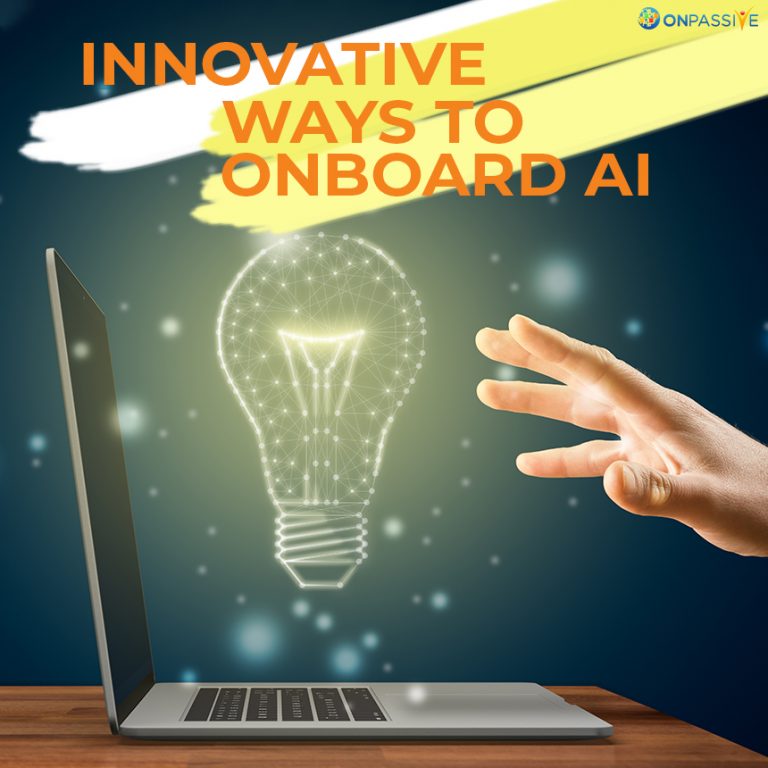
Artificial intelligence has brought significant transformations in various industries. Two out of ten successful entrepreneurs say that artificial intelligence is an efficient productivity tool. Many business leaders are looking to onboard AI as it offers tangible benefits in processing speed, accuracy, and consistency. AI in healthcare has enormous applications. Healthcare professionals leverage AI to make decisions about treatments.
While AI offers significant opportunities for businesses of all sizes, they bring challenges as well. Various respondents in the US fear that AI will replace humans in the years to come. However, AI will not completely replace humans, but will only make their tasks more manageable and smoother. Artificial intelligence also helps business leaders during high-volume decision-making. Here we will explain in detail how to onboard AI in your organization.
#1: Assistant
The initial phase to onboard AI is similar to the process of training a new employee or assistant. A common objective of AI assistant is sorting data as various businesses now require this type of data sorting for efficient decision making. For portfolio managers, choosing stocks in which to invest becomes more comfortable with AI tools. This is because AI can efficiently help them filter stocks to meet predefined criteria.
Besides, AI lends assistance in decision-making. You must have noted that Google predicts the phrase you are about to type and speeds up typing. This is all because of artificial intelligence. The same process applies to decision-making in an organization. AI identifies the choice that an employee is likely to make by analyzing their past decisions and preferences. This eventually speeds up the entire business activities.
In the airline industry, AI assists staff to predict inventory accurately. This eventually helps catering managers to manage stock-outs and overstocks and keep their customers satisfied. AI efficiently makes accurate predictions by analyzing past decisions and rules set by the manager. AI has a significant role in our daily lives when we allow the autocomplete function to prefill forms for us online.
#2: Monitor
AI can help in decision making, especially when humans may get tired or distracted with massive data. AI accurately forecasts users’ directions and even flags the discrepancies. Often the predictions that AI makes may not be much accurate, but they are nearly 80% close to the final decision.
However, privacy is a primary concern while using AI tools and applications. Although AI protects user data, users must guarantee customers that any data AI collects are kept confidential. To efficiently leverage the benefits of AI, business leaders must ensure to familiarize employees of AI models and provide adequate training to employees. This phase of onboard AI will help employees to understand how the AI model is built and managed.
#3: Coach
Continually tracking the performance and getting feedbacks can help individuals to a great extent to build faith in them. This is because identifying strengths and weaknesses is imperative for improvement. To understand strengths and weaknesses, individuals will need to manually document their expectations about outcomes and match them with what happened. AI can combat this challenge in an organization. AI can help employees to evaluate their performance and identify areas that need improvement regularly. This will help them to understand their decision patters and practices well. This mainly applies to companies in the financial sector, where portfolio managers can gather feedback from the data analytics system.
AI can be labeled as a personal coach who provides feedback for improvements. Like a coach, AI provides personalized feedback to individuals on development areas and highlights changes over time to enhance their confidence in the decision-making process. Like how a coach learns about the team from their behavior and efforts, AI uses past user behavior to make feedback about employees’ performances.
With the widespread adoption of AI, users fear of losing their power of decision making. However, the truth is that businesses that onboard AI, open up new learning opportunities for their employees.
#4: Teammate
AI assists us as a teammate by helping in the decision-making process. AI improves customer experience by analyzing individuals’ past decisions and behaviors online. A significant approach to building a successful business is to create a great team. AI enhances team collaboration and allows users to work together to reach their core objectives. AI can be trusted as a teammate as it ensures all the data are confidential.
Summary
AI can be an efficient partner in the workplace as it enables employees to automate their day-to-day tasks and focus on their core objectives. AI can also help in dynamic decision making by analyzing all the available data. Besides, AI can become the right partner in the workplace, from processing large amounts of scattered data to making sound business decisions.


